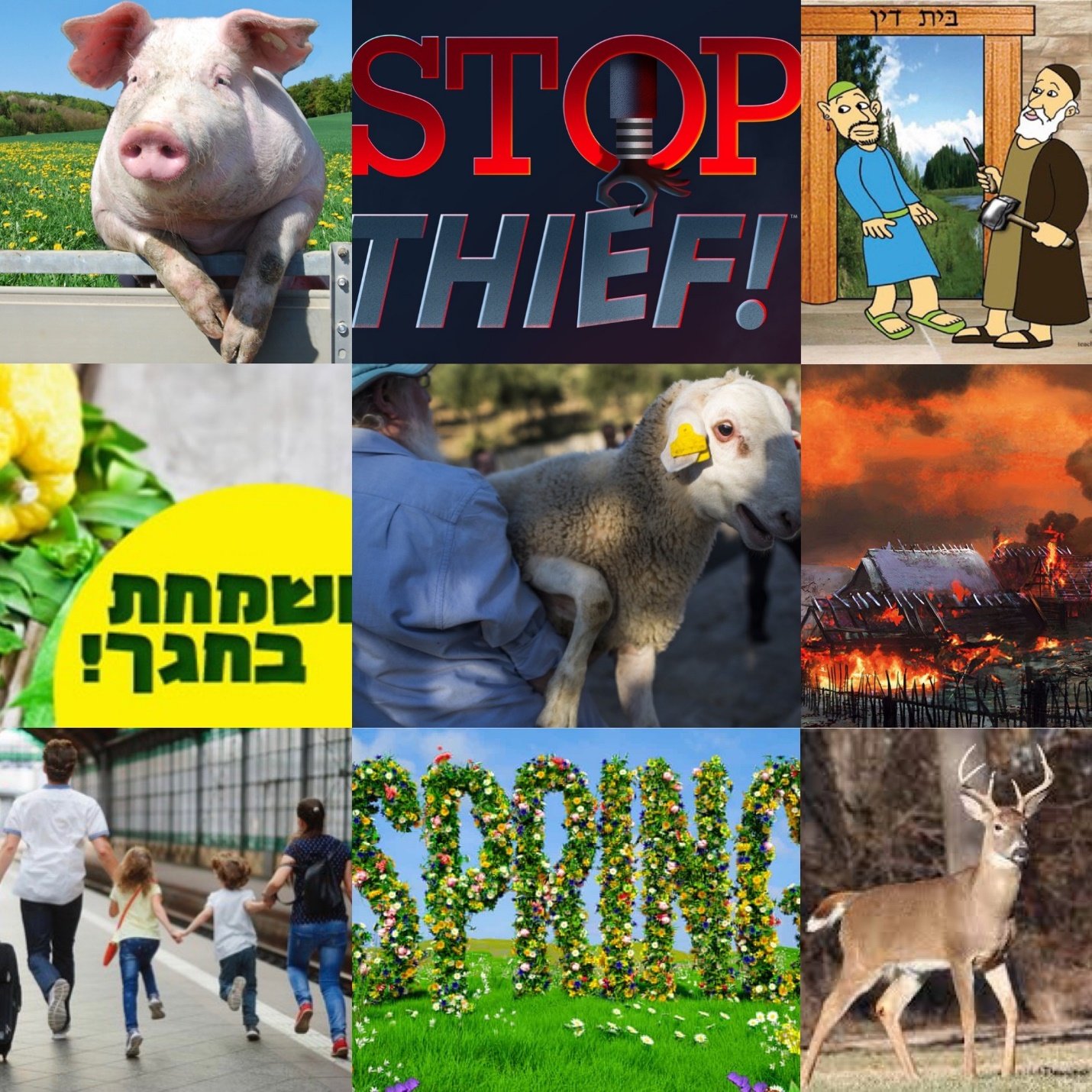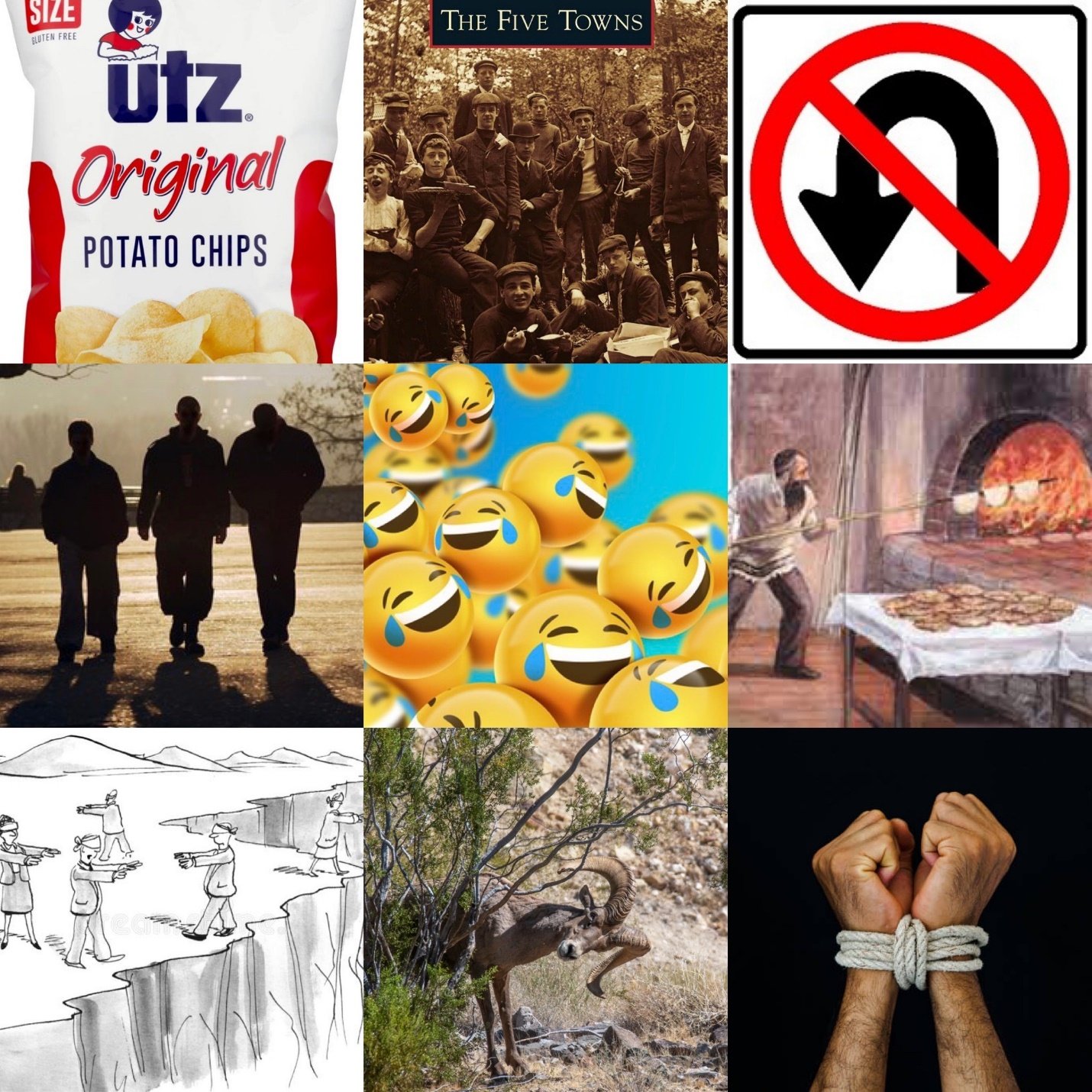PARSHAS RE’EH
Can you figure out what each picture has to do with the parsha?
 ’E
’E
Rabbi Dani Staum
Re’eh – Parsha Pix – KEY
Pig – The Torah reviews the laws of what makes an animal kosher – it must have split hooves and chew its cud. The pig is the only animal that has split hooves but does not chew its cud – 14:8
Stop thief – The Torah discusses one who is sold as a slave to another Jew. Rashi explains that he was sold because he stole and didn’t have the means to pay back. He was sold as a slave to compensate for his thievery – 15:12
Ear against doorpost – If the salve doesn’t want to return to his family after six years, his ear is pierced with an awl, and he remains a slave until Yovel – 15:17
V’samachta b’chagecha – It is an obligation for one to be joyous during the tri-annual festivals of Pesach, Shavuos and Succos – 16:14
Holding a sheep – A sheep (or cattle) had to be brought to the Bais Hamikdash where it was offered as a Korban Pesach on the fourteenth of Nissan – 16:2
Village on fire – An ir hanidachas – a city found to be idol-worshippers must be completely obliterated – 13:16
Family running – When we left Egypt, we left in a hurry and our dough didn’t have a chance to rise – 16:3 (see Rashi). Alternatively, it can refer to where the Torah commands us to not listen to our own family members, if they try to convince us to serve idolatry – 13:7.
Spring – Pesach must be observed in the spring. Rashi here writes that the Korban Omer, brought on the second day of Pesach, must be brought from the new crop, so the festival must take place in the spring – 16:1 (In Shemos 13:4 Rashi writes that Hashem took our ancestors out of Egypt during the spring, because it is the most comfortable time of year to travel.)
Deer – In the desert, the Jews were only allowed to eat meat when an individual brought a korbon shelamim (peace offering) and were given the meat to eat. However, once the nation entered Eretz Yisroel they were allowed to slaughter an animal anywhere to enjoy its meat. The Torah states that the meat is permitted like that of the deer and the hart. (Those two animals can never be brought as an offering) – 12:15



